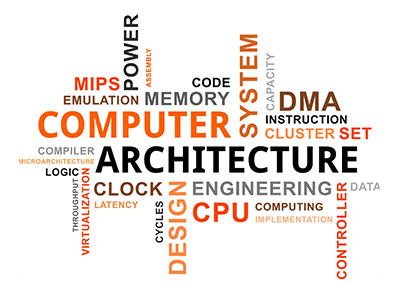Computer Architecture
Module ID
E602
Semester
6
Hours/Week - ECTS
4 – 5

George Adam
Professor
Learning Outcomes
The course is an advanced course in computer architecture. The course material aims to understand and acquire an in-depth knowledge of the subject of computer architecture, with special emphasis on modern processor cores, as well as their memories. This course is also the link to the more advanced parallel and embedded architecture courses.
Upon successful completion of the course, the student will be able to:
- Understand basic and critical computer architecture topics.
- Have knowledge in advanced topics found in modern processors and computing systems.
- Explain and solve problems related to modern processor cores and their instruction routing, both dynamic and static, or comments on topics from important publications.
- Study real processors, develop hardware description or high-level simulation code for them, and on the other hand collaborates with his colleagues to create and present a group paper on a topic related to modern processors, if he chooses group work.
- Search and study modern bibliography in internationally prestigious journals and conferences, explain and evaluate publications from them to a satisfactory degree, as well as present his conclusions in class, if he chooses individual work.
Indicative Module Content
- The architecture and organization of modern computers and microprocessors
- Pipelining commands and control unit design
- Superscalar processors
- Dynamic command routing and static command routing
- Model-based techniques to improve the performance of modern processors
- Parallel architectures, multiprocessors and multi-computers
- Cache coherence, memory consistency and synchronization
- Advanced memory organization and peripherals, for high-performance processors
- Simulation/design of a microprocessor system, or memory system, via a high-level programming language (C, C ++) or hardware-level (VHDL, Verilog)
- Evaluation of architectural performance based on benchmarks.

